Ditapis dengan
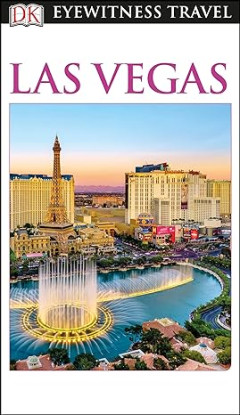
E-book Eyewitness Travel: Las Vegas
Visit and explore Las Vegas, a.k.a. Sin City, and walk along the strip, gamble in the casinos, eat amazing food, or stop by a show in the entertainment capital of the world. From top restaurants, bars, and clubs to standout scenic sites and walks, our insider tips are sure to make your trip outstanding. Whether you're looking for unique and interesting shops and markets, or seeking the best ve…
- Edisi
- -
- ISBN/ISSN
- 9780241275450
- Deskripsi Fisik
- 202 halaman, ilus.
- Judul Seri
- -
- No. Panggil
- 910 STR e
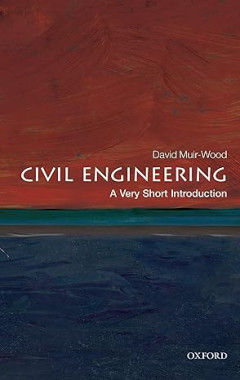
E-book Civil Engineering: A Very Short Introduction
Civil engineering has made an inestimable contribution to modern life, providing the crucial expertise behind our vast transportation systems and the wide array of built structures where we work, study, and play. In this Very Short Introduction, engineer David Muir Wood turns a spotlight on a field that we often take for granted. He sheds light on the nature and importance of civil engineering …
- Edisi
- -
- ISBN/ISSN
- 9780199578634
- Deskripsi Fisik
- 309 halaman
- Judul Seri
- -
- No. Panggil
- 624 WOO c
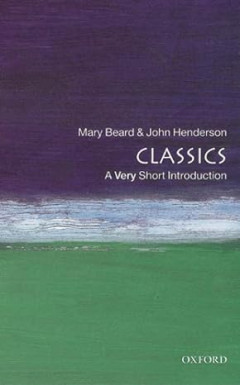
E-book Classics: A Very Short Introduction
This Very Short Introduction to Classics links a haunting temple on a lonely mountainside to the glory of ancient Greece and the grandeur of Rome, and to Classics within modern culture-from Jefferson and Byron to Asterix and Ben-Hur. We are all Classicists - we come into touch with the Classics daily: in our culture, politics, medicine, architecture, language, and literature. What are the tr…
- Edisi
- -
- ISBN/ISSN
- 9780192853851
- Deskripsi Fisik
- 161 halaman
- Judul Seri
- -
- No. Panggil
- 801 BEA c
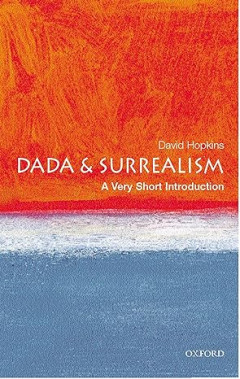
E-book Dada and Surrealism: A Very Short Introduction
The avant-garde movements of Dada and Surrealism continue to have a huge influence on cultural practice, especially in contemporary art, with its obsession with sexuality, fetishism, and shock tactics. In this new treatment of the subject, Hopkins focuses on the many debates surrounding these movements: the Marquis de Sade's Surrealist deification, issues of quality (How good is Dali?), the ide…
- Edisi
- -
- ISBN/ISSN
- 9780192802545
- Deskripsi Fisik
- 206 halaman
- Judul Seri
- -
- No. Panggil
- 709.04 HOP d
E-book Dinosaurs: A Very Short Introduction
Dinosaurs are fascinating creatures and their popularity seems never ending, fueled by films such as Jurassic Park and documentaries such as Walking with Dinosaurs. Yet dinosaurs (or more precisely non-avian dinosaurs) last trod the Earth 65 million years ago. All we know of them today are their fossilized bones, the tracks and traces that they left behind and, in very rare instances, some of t…
- Edisi
- -
- ISBN/ISSN
- 0192804197
- Deskripsi Fisik
- 193 halaman
- Judul Seri
- -
- No. Panggil
- 567.9 NOR d
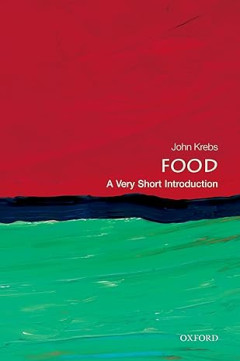
E-book Food: A Very Short Introduction
In this Very Short Introduction, Prof Lord John Krebs provides a brief history of human food, from our remote ancestors 3 million years ago to the present day. By looking at the four great transitions in human food - cooking, agriculture, processing, and preservation - he considers a variety of questions, including why people like some kinds of foods and not others; how your senses contribute t…
- Edisi
- -
- ISBN/ISSN
- 9780199661084
- Deskripsi Fisik
- 266 halaman
- Judul Seri
- -
- No. Panggil
- 577.16 KRE f

E-book Forensic Psychology: A Very Short Introduction
Lie detection, offender profiling, jury selection, insanity in the law, predicting the risk of re-offending , the minds of serial killers, and many other topics that fill news and fiction are all aspects of the rapidly developing area of scientific psychology broadly known as Forensic Psychology. This fascinating Very Short Introduction discusses all the aspects of psychology that are relevant …
- Edisi
- -
- ISBN/ISSN
- 9780199550203
- Deskripsi Fisik
- 160 halaman
- Judul Seri
- -
- No. Panggil
- 614.1 CAN f
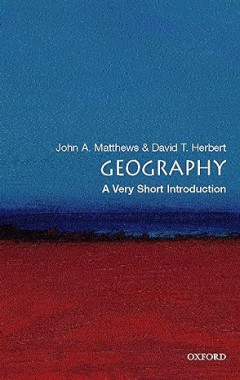
E-book Geography: A Very Short Introduction
This Very Short Introduction answers four basic questions: what is Geography, how do geographers work, why is Geography important, and where is the discipline of Geography heading? Geography has always been important, though it has had only a short history as an academic discipline and is much misunderstood. Modern Geography has come a long way from its historical roots in exploring foreign lan…
- Edisi
- -
- ISBN/ISSN
- 9780199211289
- Deskripsi Fisik
- 201 halaman
- Judul Seri
- -
- No. Panggil
- 910.1 MAT g

E-book God: A Very Short Introduction
Who or what is God? How do different religions interpret God's existence? How can we know God? Many people believe in God; not just throughout history but also in the present day. But who or what is it they believe in? Many different and sometimes conflicting answers have been suggested to this question. This Very Short Introduction explores some of the answers provided by philosophers, poet…
- Edisi
- -
- ISBN/ISSN
- 9780198708957
- Deskripsi Fisik
- 308 halaman
- Judul Seri
- -
- No. Panggil
- 211 BOW g
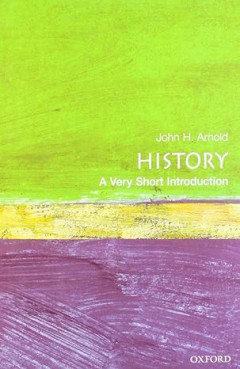
E-book History: A Very Short Introduction
There are many stories we can tell about the past, and we are not, perhaps, as free as we might imagine in our choice of which stories to tell, or where those stories end. John Arnold's addition to Oxford's popular Very Short Introductions series is a stimulating essay about how people study and understand history. The book begins by inviting us to think about various questions provoked by our …
- Edisi
- -
- ISBN/ISSN
- 9780192853523
- Deskripsi Fisik
- 152 halaman
- Judul Seri
- -
- No. Panggil
- 900.0 ARN a
 Karya Umum
Karya Umum  Filsafat
Filsafat  Agama
Agama  Ilmu-ilmu Sosial
Ilmu-ilmu Sosial  Bahasa
Bahasa  Ilmu-ilmu Murni
Ilmu-ilmu Murni  Ilmu-ilmu Terapan
Ilmu-ilmu Terapan  Kesenian, Hiburan, dan Olahraga
Kesenian, Hiburan, dan Olahraga  Kesusastraan
Kesusastraan  Geografi dan Sejarah
Geografi dan Sejarah